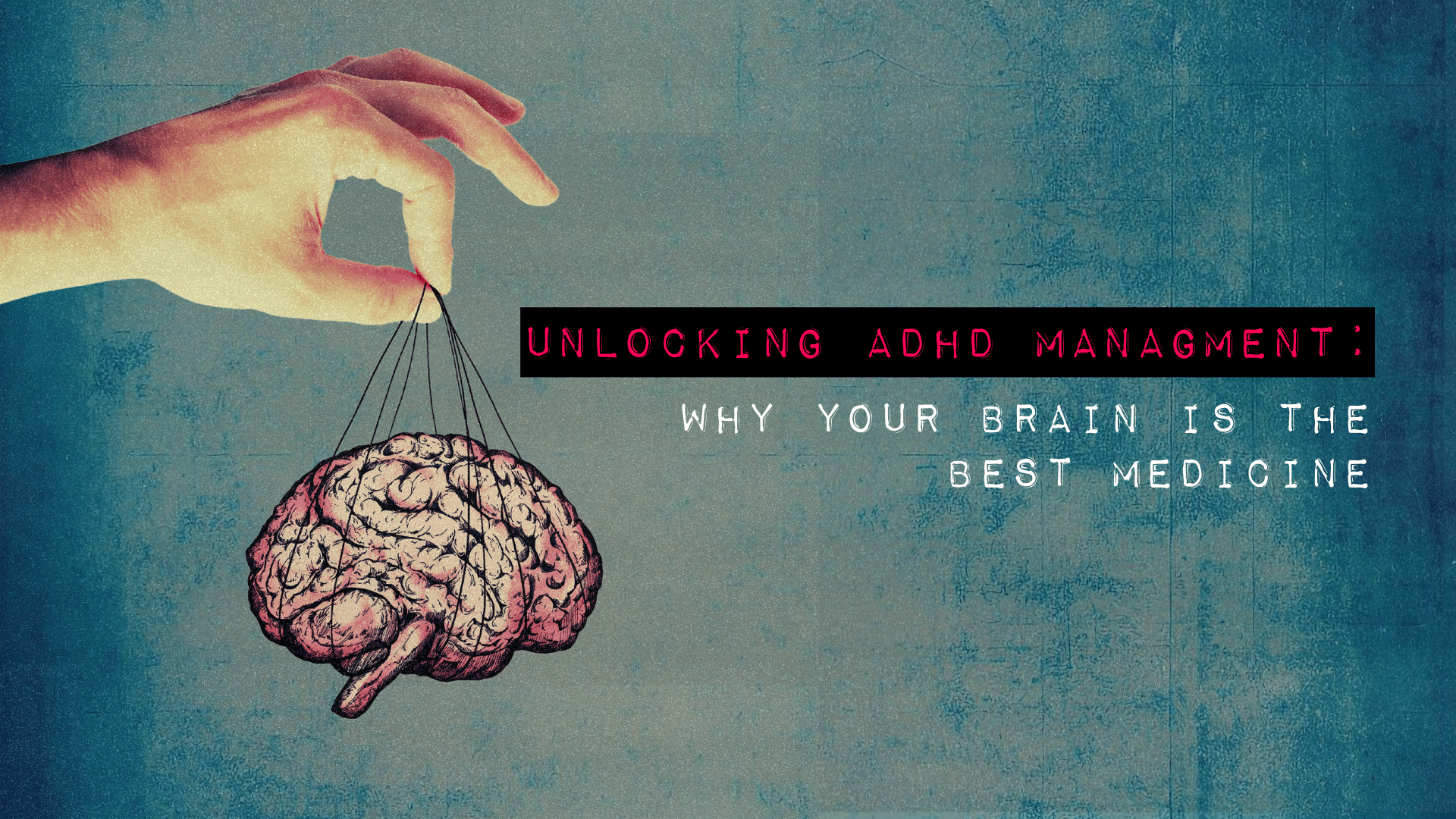Unlocking ADHD Management
Let me guess…You’re sick of the endless loop of medication adjustments, doctor’s appointments, and frustrating side effects when it comes to managing ADHD. Guess what? You’re not alone!
If you’re tired of traditional ADHD tactics it may be time to try a holistic ADHD management approach. Don’t worry, it’s not as hippie-dippy as it sounds. But it does place your brain at the center of your ADHD management strategy. Here’s why your brain could be your best medicine.
The Limitations of Medication-Only Approaches
While medications are a cornerstone in the management of ADHD, offering significant benefits for many they’re not a complete solution. Medication can help with some issues like inattention, hyperactivity, and impulsivity. However, meds don’t teach coping skills or strategies to overcome challenges and the benefits of medication may not fully address the unique complexities of life with ADHD.
Side effects can also be a challenge, including appetite loss, sleep disruption, headaches, emotional volatility, rebound symptoms when medication wears off, and more. Additionally ADHD manifests differently in each individual so a medication-only approach does not consider an individual’s strengths, weaknesses, lifestyle, or preferences. This means medication alone can fall short in improving quality of life and we have to weigh the risks and benefits of medication based on our unique situations.
Psychoeducation as a Foundation for Management
Knowledge is power, especially when it comes to managing ADHD. Psychoeducation—learning about the condition’s neurobiology, symptoms, and management strategies—we can develop a more nuanced understanding of our experiences. Examining ADHD from a biological standpoint and exploring executive functioning deficits, impaired dopamine signaling, and structural and functional brain differences associated with ADHD can bring self-clarity allowing us to take a holistic approach to ADHD management.
Understanding ADHD isn’t just about knowing what it is, but how it uniquely affects you. Psychoeducation empowers you with a solid foundation to tailor your management strategies effectively, ensuring that you don’t just treat symptoms but address ADHD in a way that fits your unique life.
Alternative Strategies to Consider:
Therapy
Helps you develop coping strategies for managing symptoms and addressing any co-occurring conditions like anxiety or depression. Both individual and family therapy provide support and teach skills for improving organization, focus, emotional regulation and relationships.
Coaching
Coaching provides you with the tools to tackle ADHD’s daily challenges, offering strategies that complement medication by addressing behavioral and cognitive aspects. It uses personalized strategies to help you set goals, manage time, get organized, and develop new habits and routines. By providing structure, guidance and accountability, an ADHD coach can help you make significant changes.
Lifestyle Modifications
Making simple changes in diet, exercise, and sleep can profoundly impact ADHD symptoms. It’s about creating a routine that supports your overall well-being. Physical activity improves focus and mood while a nutritious, protein-rich diet provides energy and supports cognitive function.
Create Systems
Developing organizational systems and routines can minimize distractibility and forgetfulness. Strategies like using planners and calendars, decluttering workspaces, and creating checklists may help you stay focused and on-task. However, there is nothing wrong with you if they don’t! It’s all about finding what works for you.
Personalized Approaches
Personalization means a management plan that truly fits including:
- A comprehensive evaluation to understand the individual’s symptoms, comorbidities, medical history, and goals for treatment.
- Collaborative treatment planning between you, your healthcare provider, and your support network. Ultimately you have the final say in setting goals and selecting interventions.
- Ongoing monitoring and adjustments to the treatment plan based on your response and changing needs.
- Access to a diverse toolkit of evidence-based interventions beyond medication, such as coaching, therapy, skills training, and dietary changes suited to your preferences and lifestyle.
Support Squad: Your Circle of Empowerment
No one should navigate ADHD alone. Building a supportive network of family, friends, healthcare providers, and peers is crucial. Having a supportive squad fosters greater understanding, acceptance, and collaboration when navigating the ups and downs of ADHD making the journey less daunting and more manageable. Loved ones can provide encouragement during difficult times and celebrate successes.
So Now What?
“Unlocking ADHD Management: Why Your Brain is the Best Medicine” isn’t just a title; it’s a call to action. It’s an invitation to view ADHD management through a new lens, one that recognizes the complexity of the condition and the individual. By embracing a holistic approach—integrating psychoeducation, alternative strategies, personalized care, and a supportive environment—we open the door to a life defined not by ADHD, but by resilience, self-awareness, and empowerment.
Curious about holistic ADHD management strategies that complement medication?
Let’s explore together. Embracing your brain’s potential and strategies beyond medication can transform your ADHD journey. Book your FREE DISCOVERY CALL, today!
Remember, your brain is not just part of the challenge; it’s key to the solution.
